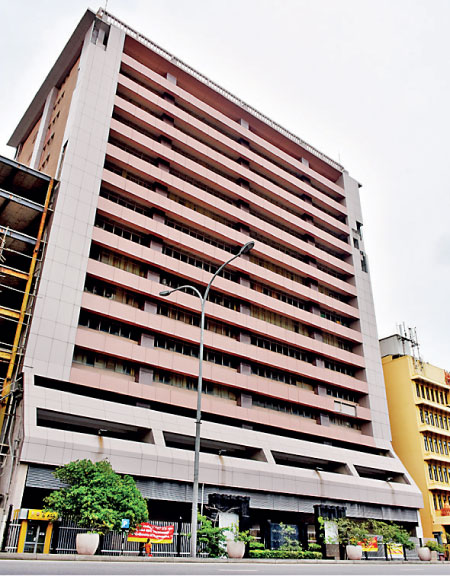Sunday Feb 15, 2026
Sunday Feb 15, 2026
Thursday, 13 October 2022 02:13 - - {{hitsCtrl.values.hits}}
 The Government has gazetted the Inland Revenue (Amendment) Bill, bringing in new tax measures to boost State revenue.
The Government has gazetted the Inland Revenue (Amendment) Bill, bringing in new tax measures to boost State revenue.
The Gazette is a follow up to the revenue proposals announced in the interim Budget unveiled in August by President and Finance Minister Ranil Wickremesinghe.
The changes stemming from this Bill are subject to Committee stage amendments and will be effective upon the Bill being signed into law.
The move comes in the wake of a series of economic reforms Sri Lanka has committed to with the IMF, which includes tax reforms and increasing State income.
The Bill revises a number of levies and will also further empower the Inland Revenue Department, as the primary agent for collecting taxes and dealing with issues arising with taxes on behalf of the Government.
As per the Gazette, the tax-free allowance has been reduced and would broaden the base of the tax net. Thereby, any individual with gross monthly earnings of Rs. 100,000 or above would be liable for Income Tax from 1 October 2022.
Employers have to deduct the tax as Advance Personal Income Tax (APIT) from payments made to employees and Personal Income Tax Return is not required by an individual whose tax payable for the year – where the employer has deducted APIT. The top marginal personal income tax rate is gazetted as 36%.
In the interim Budget in August, President Wickremesinghe proposed to introduce compulsory tax registration for all residents who are aged above 18 years, without considering their annual income and tax-free thresholds.
As per the Gazette, from 1 October 2022 the concessionary tax rate of 14% and 18% applicable on the taxable income of the identified company gains and profits will not be applicable.
Capital gain tax rate applicable on realisation of investment asset by the companies will be increased from 10% at present, to 30% with effect from 1 October 2022.
Earlier this year, the Cabinet Ministers approved to amend the Value Added Tax Act No. 14 of 2002, Telecommunications Levy Act No. 21 of 2011, Betting and Gaming Levy Act No. 40 of 1988 and the Fiscal Management Act No. 3 of 2003 in addition to the Inland Revenue Act No. 24 of 2017.